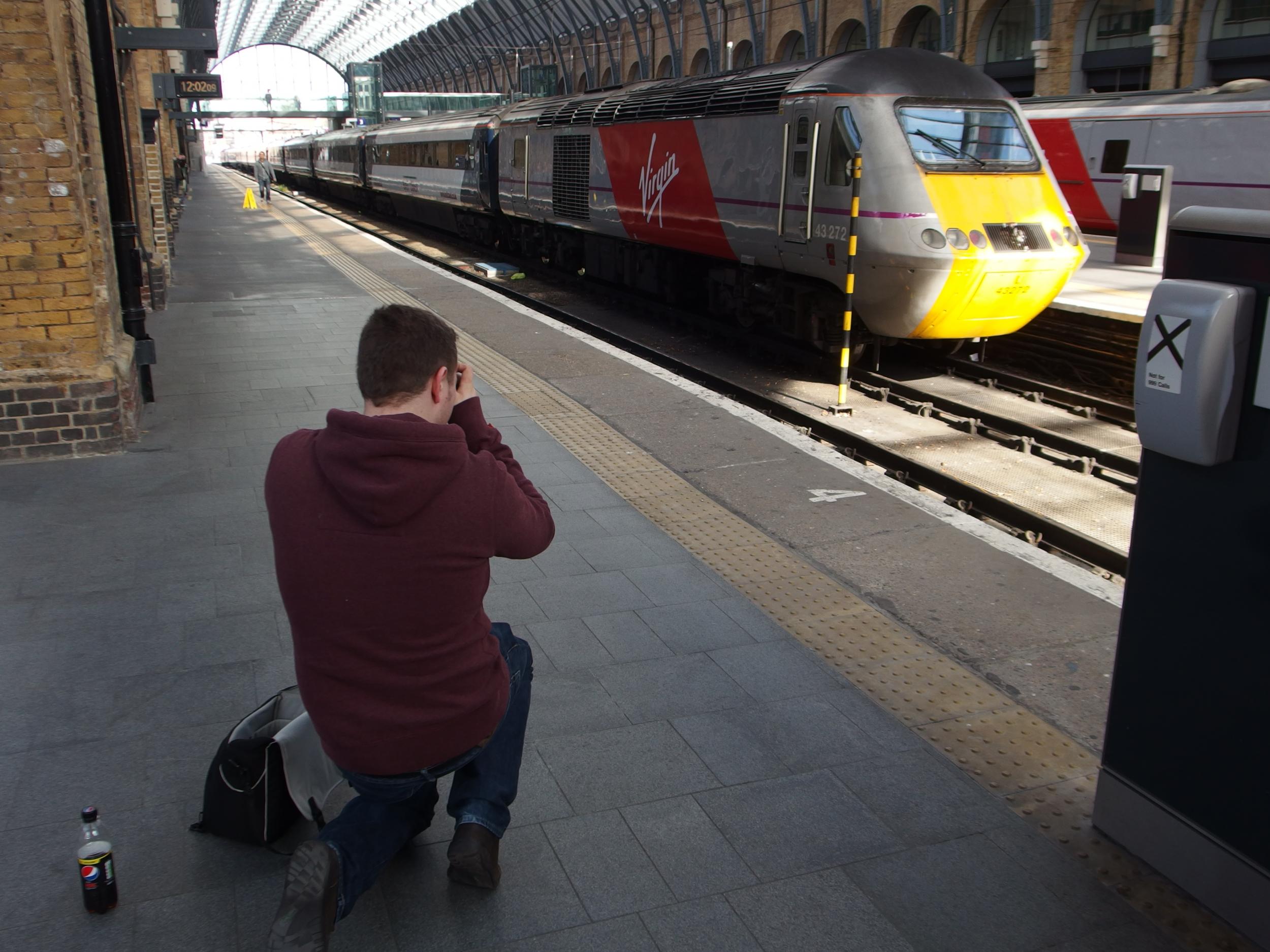Rail franchising is ‘broken’ say MPs
The franchise involving Southern 'has been a multi-faceted shambles causing untold misery for passengers,’ says Public Accounts Committee chair

Your support helps us to tell the story
From reproductive rights to climate change to Big Tech, The Independent is on the ground when the story is developing. Whether it's investigating the financials of Elon Musk's pro-Trump PAC or producing our latest documentary, 'The A Word', which shines a light on the American women fighting for reproductive rights, we know how important it is to parse out the facts from the messaging.
At such a critical moment in US history, we need reporters on the ground. Your donation allows us to keep sending journalists to speak to both sides of the story.
The Independent is trusted by Americans across the entire political spectrum. And unlike many other quality news outlets, we choose not to lock Americans out of our reporting and analysis with paywalls. We believe quality journalism should be available to everyone, paid for by those who can afford it.
Your support makes all the difference.MPs have lambasted the Department for Transport (DfT) as “completely inadequate” in its handling of two key rail franchises.
The cross-party Public Accounts Committee has expressed “deep concern” about the way the UK’s busiest franchise, covering Southern, Thameslink, Great Northern and the Gatwick Express, has been managed.
Passengers “have suffered an appalling level of delays and cancellations since the franchise started in 2014,” say the MPs. At one point, fewer than two-thirds of trains arrived on time.
“This totally unacceptable state of affairs which caused misery for passengers was due to a catalogue of failures by the Department, Network Rail and the operator, Govia Thameslink,” says the report, Rail franchising in the UK.
The DfT is slammed for being overambitious in its plans, for overlooking the poor state of rail network infrastructure, and for neglecting to engage with rail unions.
The role of guards on Southern has been the subject of a bitter industrial dispute for two years. During that time, commuters using the network serving south London, Surrey and Sussex have endured severe disruption.
Although the train drivers’ union, Aslef, has settled with Govia Thameslink, the RMT union has not.
“The Department failed to see, or chose not to see, the perfect storm of an ambitious upgrade programme coupled with plans to increase driver controlled operation of trains,” the MPs conclude.
“Whilst the Department seeks to heap blame on the unions, it must acknowledge that its own decisions and lack of constructive engagement have played a large part in the dismal service for passengers.”
The chair of the committee, Labour’s Meg Hillier, said: “The operation of the Thameslink, Southern and Great Northern franchise has been a multi-faceted shambles causing untold misery for passengers.”
The committee also investigated the third failure of a franchise on the East Coast main line, Britain’s flagship rail route, connecting London King’s Cross with Leeds, Newcastle and Edinburgh.
In 2015 it was taken over by Virgin Trains East Coast (VTEC), 90 per cent owned by Stagecoach. The firm has lost £200m on the franchise, about one-fifth of the value of the entire group.
In February, the Transport Secretary announced the end of the VTEC franchise, saying it was likely to fail within “a very small number of months”. The franchise was intended to last until March 2023.
It follows the collapse in 2007 of GNER, part of the Sea Containers conglomerate. That franchise was taken over by National Express, which itself handed back the keys in 2009.
Ms Hillier said: “The East Coast franchise has failed for a third time because of wildly inaccurate passenger growth forecasts.
“The franchising model is broken and passengers are paying the price. If taxpayers are to have any faith in government’s ability to deliver an effective passenger rail network then it must conduct and act on a thorough review before any further franchises are awarded.
“At its heart should be new measures to embed the protection of passengers’ interests at a contractual level – and to ensure taxpayers’ interests are properly protected should franchisee performance break down.”
But the DfT described the report as ”imbalanced”, saying the committee had failed to challenge inaccurate claims from the RMT – and to grasp the complexity of the situation.
A DfT spokesperson said: “The Department expressly created the Thameslink, Southern and Great Northern franchise to deliver the Thameslink Programme – a once-in-a-generation infrastructure upgrade to revolutionise north-south journeys through London for millions of passengers. New Thameslink trains are already in service and are transforming performance for customers.
“The delay and disruption Southern passengers experienced due to strike action in 2016 was unacceptable, but services have improved dramatically and a brand-new programme will begin next month bringing further improvements to their journeys.
“Our franchising model already puts passengers and taxpayers first and has doubled the number of passengers using trains since privatisation. It has reversed decades of decline and underinvestment under British Rail.”
Paul Plummer, chief executive of the Rail Delivery Group, which represents train operators and Network Rail, said: “As part of our plan for a changing and improving railway, we’ve already begun sharing our initial thinking with government on how the contracting of services can evolve to deliver more.
“It would be wrong for the industry to sit in a room by itself and decide what these reforms should be, so we are engaging with groups representing those who rely on the railway every day.”
The Public Accounts Committee has seven Conservative and seven Labour members, and one representative from each of the Liberal Democrats and the SNP.
Join our commenting forum
Join thought-provoking conversations, follow other Independent readers and see their replies
Comments